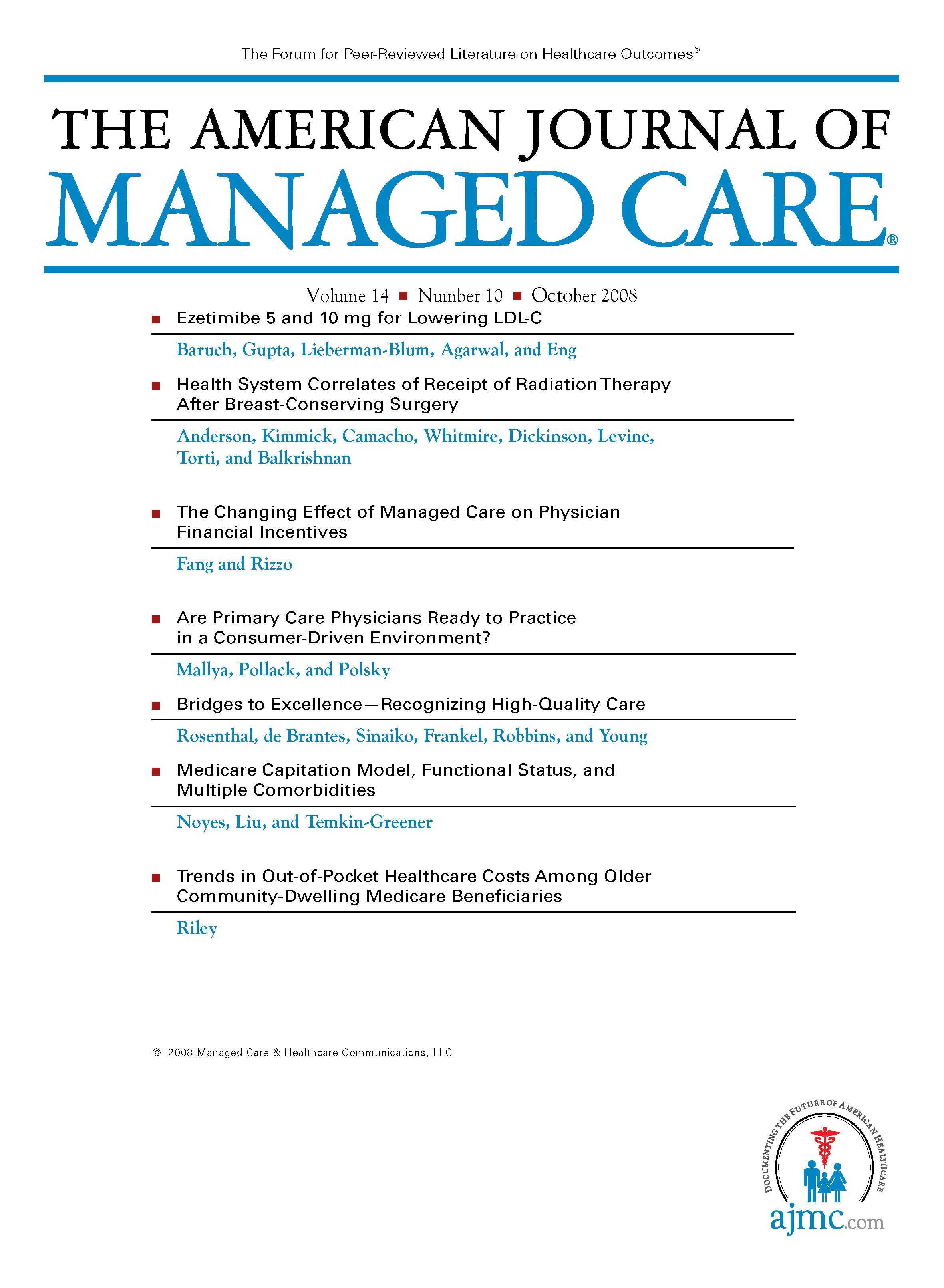- Center on Health Equity & Access
- Clinical
- Health Care Cost
- Health Care Delivery
- Insurance
- Policy
- Technology
- Value-Based Care
Correspondence regarding, "Univariate solutions in a multivariate world: Can we afford to practice as in "the good old days"?
TO THE EDITORS
I just read the commentary by McMahon et al.1 I very much support their arguments and would like to share a 30-year-old anecdote.
In the early 1970s, as a graduate student at Carnegie-Mellon University, I was involved in a project that applied cost-effectiveness analysis to medical screening tests in use at that time, one of which was Pap smears. The faculty concluded that cervical cancer screening was not cost effective, based on a mathematical model that used the low overall incidence of cervical cancer, among many other inputs. I and another student independently re-did the analysis, separating the data by ethnicity and age. We found that screening guidelines should vary by both the woman's ethnicity and age.
Thirty years on, this concept of targeting screening or treatment to those for whom it would most benefit and not providing it to those for whom it would least benefit is still not accepted. Some may say this is rationing–if so, it is rationing based on clinical and epidemiologic information. In a society with limited resources for government programs such as Medicare and Medicaid, and with 48 million people without health insurance coverage, rationing based on clinical and epidemiologic information is preferable to rationing based on economic criteria.
W. P. Carey School of Business
Bradford Kirkman-Liff, DrPH

Quality of Life: The Pending Outcome in Idiopathic Pulmonary Fibrosis
February 6th 2026Because evidence gaps in idiopathic pulmonary fibrosis research hinder demonstration of antifibrotic therapies’ impact on patient quality of life (QOL), integrating validated health-related QOL measures into trials is urgently needed.
Read More
Building Trust: Public Priorities for Health Care AI Labeling
January 27th 2026A Michigan-based deliberative study found strong public support for patient-informed artificial intelligence (AI) labeling in health care, emphasizing transparency, privacy, equity, and safety to build trust.
Read More
Ambient AI Tool Adoption in US Hospitals and Associated Factors
January 27th 2026Nearly two-thirds of hospitals using Epic have adopted ambient artificial intelligence (AI), with higher uptake among larger, not-for-profit hospitals and those with higher workload and stronger financial performance.
Read More
Motivating and Enabling Factors Supporting Targeted Improvements to Hospital-SNF Transitions
January 26th 2026Skilled nursing facilities (SNFs) with a high volume of referred patients with Alzheimer disease and related dementias may work harder to manage care transitions with less availability of resources that enable high-quality handoffs.
Read More

